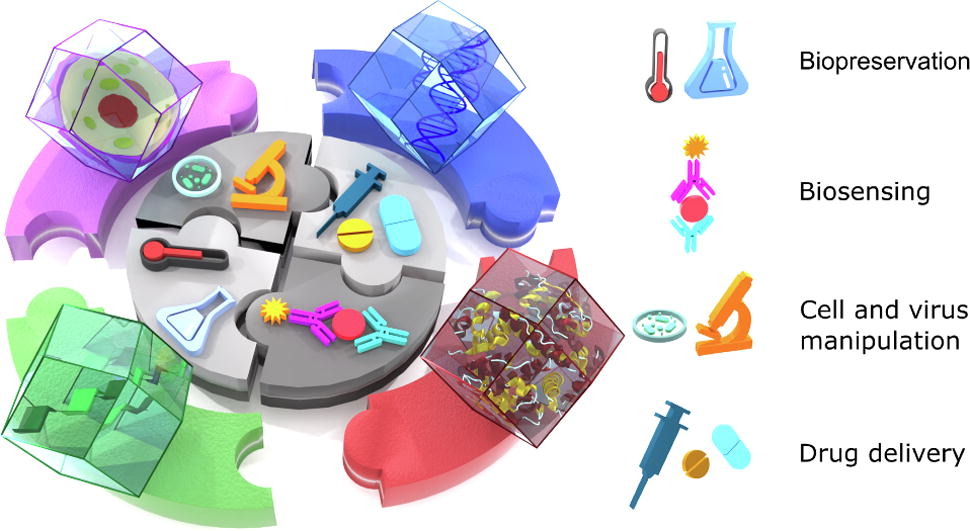

M. de J. Velásquez-Hernándeza, M. Linares-Moreaua, E. Astriaa, F. Carraroa, M.Z. Alyamib, N.M. Khashab, C.J. Sumbyc, C.J. Doonanc, P. Falcaroa; Towards applications of bioentities@MOFs in biomedicine; Coordination Chemistry Reviews, Volume 429, 15 February 2021, 213651
Metal–organic frameworks (MOFs) combined with biomacromolecules, viruses and cells have emerged as novel biocomposites for application to drug delivery, biosensing, biospecimen preservation, and cell and virus manipulation. The integration of biological entities into MOF matrices generates MOF biocomposites with functional characteristics that cannot be observed in the separate components, such as enhanced chemical and thermal stability, resistance to proteases, MOF-conferred selectivity, and controlled release. In this review, we will discuss these functional properties and applications of the biocomposites obtained by the encapsulation of (i) proteins, (ii) carbohydrates, (iii) nucleic acids, and (iv) viruses or cells in a MOF matrix. Finally, we review the post functionalization of MOF-based drug carriers with lipids as a potential route to enhance the dispersion, stability in biological fluids, and blood circulation time of MOF-based drug delivery systems.
